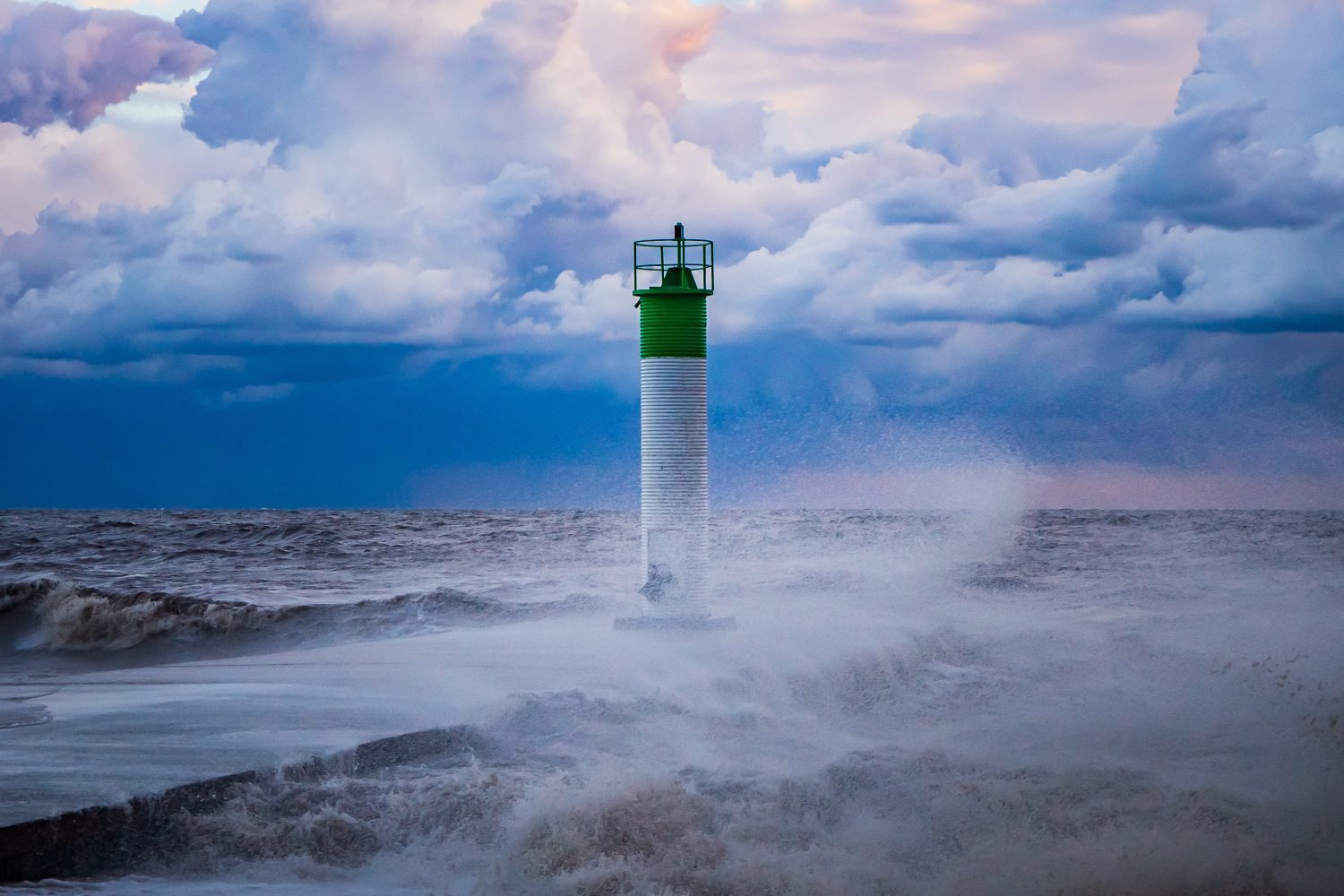I was born at the end of the eighties, this side of Hansen’s testimony to the US Congress and before the first Scientists’ Warning and Earth Summit in 1992. Much of the subsequent mainstream narrative on the environmental crisis seems to have been akin to warning fellow crewmates on a ship of a far-off storm. A small deviation in course would avoid disaster in the future. It is of course challenging to learn that, in the intervening thirty-odd years, the bearing was not changed, and the ship accelerated, as so many warned throughout. We are now well into the storm and heading deeper, as this paper so thoroughly reminds us.
This next stage materially changes our strategies for shared survival. What to do? First, it’s important to recognise that progress has been made – and is mixed. Mainstream political appreciation of the enormity of the climate challenge has improved markedly over the last few years. Some progress has been made in relation to appreciation of biodiversity loss. Yet the same cannot be said of the dire state of other parts of nature. Comprehension of the emergency as encompassing the critical destabilisation of the Earth System as a whole – a destabilisation that could soon overwhelm our agency – is functionally absent.
Crucially, progress is starting to be made in eroding a globally preeminent market fundamentalism. Behind the glare of the Green New Deal sits an array of ideas and practice on ownership, investing, wellbeing and so on, with increasingly influential communities organising around them, across north and south. The neoclassical, neoliberal paradigm of the last many decades is theory, practice and narrative, entrenched across the politics and economics determining societies’ structures and their resultant dynamics. Its unassailable position came at precisely the wrong time, eroding collective capability and shooting us further up the exponential curve of the Great Acceleration. Supplanting it has always been a necessary pre-condition for altering course. This process is accelerating, though too slowly, and too often in relative ignorance of the Earth System crisis and some of its wider socio-economic antecedents, particularly inequality and global economic power imbalances.
The 2020s could be dominated by two major stories. Firstly, neoliberalism is finally gearing up to act on climate breakdown. Following the election of Joe Biden and China’s commitment to net-zero, COP26 could be ground zero for a status quo triumphalism, founded on ubiquitous net-zero targets backed by increasingly positive rhetoric and action from major actors across the finance system. Such progress is, of course, welcome. But as we head to 2030, the reality of meeting steep decarbonisation targets could (predictably) crash up against the constrained policy set mandated by the political-economic mainstream. It is harder to discern a coherent status quo effort on biodiversity loss and biogeochemical stabilisation. The Dasgupta review of the economics of biodiversity – commissioned, significantly, by the highly orthodox UK Treasury – may portend a shift in the biases of mainstream economics, but late is the hour for reviews alone.
Secondly, the consequences of having entered the storm will mount as we head to 2030. The temperature rise will be approaching 1.5C, if it hasn’t already reached higher, and 2C won’t be far off. Damage and disruption will be growing and compounding. This is an emerging state of non-linear stress, transmitted through interconnected social and economic systems, and of saturating complexity and destabilisation. The wondrous accommodation afforded by the Holocene being over, we arrive on a new planet and in a new normal, an extreme normal. No normal. The Great Transition to save us from the downsides of the Great Acceleration will now have to be delivered during a Great Turbulence. Great.
By this point, the vertiginous stakes will be obvious to all who dare look. In turn, it could be increasingly difficult to avoid slipping down either side of a cultural saddleback. On one side, a largely ignorant, increasingly hysterical optimism, guaranteed by the rapid rollout of cleaner technologies, the promise of large-scale bio- and geo-engineering, dubious definitions of what constitutes net-zero, euphemistic conceptions of resilience and justice, and “one more heave” toward market perfection. On the other, a fatalism, often straying into misanthropy, that sees no possibility of any type of effective collective response, captivated by an eschatological cliff-edge “collapse”. These cultures are already here as we fight against 1.5C in the relative stability of a 1.2C world. Imagine them at 1.8C, 2C, 2.5C.
Both perspectives hold merit, and both lack credibility. They are a product of a world of binaries, a world that can be definitively “saved” or could definitively “end”. Yet so much has already been lost and the end of much of the current world is precisely what is needed. Biophysically, binaries are but one feature of a complex, dynamic problematique – and a frame we must therefore employ with the upmost caution.
Human activity is critically destabilising the Earth System. Swift, transformative action started around the time I was born might have limited the re-stabilisation effort to the span of a generation or so. This didn’t happen. So now, astonishingly swift and transformative action is needed just to avoid a maelstrom of feedbacks, which could rob us of our agency over those factors driving or slowing environmental breakdown. By definition, this action will have to be undertaken as the cacophony of destabilisation grows. Stuck in a storm, the primary objective is to steer out, lest the ship be overcome. Yet attention gets diverted by fear and sickness, a hole in the hull, crew abandoning their posts and grasping for the lifeboats – all of which could overwhelm the collective effort to steer out of the storm. Only if we successfully navigate this period can we afford ourselves the opportunity to get on with the main job: a vast, multi-generational effort to re-stabilise the Earth System and to live more harmoniously.
The central factor constraining the credibility of the optimists and the fatalists is an analysis of the medium term. While the former seems to under-appreciate the scale, pace and consequences of the emergency, the latter skip to the extreme end of possibility, lost in a fog of “methane burps” and inchoate “near term social collapse”. Ultimately, a world of rampant feedbacks holds little hope, of course. But, to draw on the common cliff-edge analogy, we would be wise to focus more on understanding and pre-empting the bumpy, alien typography onto which we have now strayed from the smooth road of the Holocene, and not just the sheer drop that awaits us in the distance. There are grades of ghastly future through which we will first pass.
In this emergent reality, the struggle to re-stabilise the Earth System will have to occupy the saddleback between these two cultures. Any period of rapid, paradigmatic political-economic change has been prosecuted by an ecosystem of influence, ranging through civil society, business, academia, formal politics and so on. As the stakes and destabilisation grow – and as more people join it and its power grows – this ecosystem will have to evolve to deal with the realities of being in the storm and not just warning about it. I offer three potential areas of evolution.
Firstly, the story will have to change. Telling the truth will always be a critical task. So many people still do not know the realities of climate breakdown, let alone of biodiversity loss nor of these crises as an overall destabilisation of interdependent natural and human systems and the complexities therein. The project of educating them, with care and compassion, will forever continue. But the loci of those stories carrying the truth will have to shift. The mess will be all too obvious, including to regressive political forces rehearsing the catechism that “liberal elites knew, they did nothing, now we must protect ourselves and take what’s left”.
Explaining how bad it is will increasingly have to come alongside even more powerful stories that explain why this is happening, how it came to this, and what we can all do together to fight for a liveable future. While it will be harder, if not impossible to justify the pre-2019 approach of marginalising environmental narratives that were open about the peril we face, greater destabilisation will throw up a range of other tensions and potential narrative risks. Fear and violence are alive to exploitation in scarier, less stable times; the victory of an openly barbaric, eco-nativist political narrative is an unthinkable but, as yet, unacceptably probable outcome. We must be wise to political as well as natural system feedbacks. This means fashioning a candour befitting the times and which sustains the unshakable belief – no matter what happens and against what may feel like unassailable odds – that our collective efforts can and will lead to change and to healing.
Secondly, and following directly, it will become even more important to extend the inclusive, inter-sectional politics that is growing across the world. An unstinting focus on greater equality is critical. We may be occupying the same ship as it heads into the storm, but the conditions are and have long been very different across the crew, as are the levels of responsibility, for the mess and for the response, and of capability. Put bluntly, we have little chance of marshalling an effective effort to re-stabilise the Earth System without it being and feeling like a shared endeavour.
This necessarily means doubling down on efforts to shift beyond the neoliberal paradigm – and any other that is not compatible with effective re-stabilisation – developing a political economy capable of equitable transformation, or, in the words of the IPBES, a “fundamental, system-wide reorganisation across technological, economic and social factors, including paradigms, goals and values”. That means talking about power, who has it and how, and working to dismantle those structures and dynamics holding back a collective, inclusive effort. Just as the current impasse over global vaccine distribution is partly about the business model of pharmaceuticals and economic competition, a collective response under conditions of environmental breakdown is about the power structures of the global economy.
A high inequality, low cooperation world leaves us with little options. Instead, it gifts a wealth of potential for an increasingly barbaric eco-nativism, which waits in the wings for the siren call of division. In fighting it back, we need to tell positive, practical stories of shared hope and renewal, as, among other recent examples, Kim Stanley Robinson did us the great service of doing in his most recent book. Struggles for more economic democracy, a new fiscal-monetary policy settlement, and other debates in political economy are as inseparable from the struggle to re-stabilise the natural world as questions of equity and historical injustice. Yet they are still not at the forefront.
Thirdly, we need strategies and leadership that are robust to continuing the fight under conditions of growing destabilisation. This challenge is particularly acute for younger generations. The median age of European political leaders is 52. Emerging Millennial-age leaders, such as US congresswoman Alexandria Ocasio-Cortez, will reach this age in around 2040. Fighting against 2/2.5C in a 1.5/2C world could be considerably different from fighting against 1.5C at 1.2C, as we do now. Leaders in the coming decades face an unprecedented challenge: to rapidly transform socioeconomic systems in a last-ditch attempt to re-stabilise the Earth System while contending with accelerating environmental breakdown and compounding societal destabilisation.
A failure of leadership under these conditions could fracture humanity’s capability to mitigate environmental breakdown at all. We may have one shot over the next few decades at realising a critical threshold of transition lest natural systems destabilise beyond control. This is the moment, and timing is crucial. So, getting power is only a step, a necessary but not sufficient condition. The competencies of leaders will be even more important, determining whether that power is used effectively under unprecedented conditions. Certain strategies and approaches employed in more stable times, even those from the late 2010s, might not be effective in the coming decades. Stability can breed complacency.
Action can be taken to better pre-empt and be equipped for this future, a new, explicit frontier of activity across those in climate, environmental and justice communities. This necessarily involves engaging with issues that are out of the comfort zone of these communities, or can sometimes be seen in an oppositional frame, such as defence and military strategy, the wider frontiers of foreign policy, and so on. These are the subjects that people will gravitate toward as destabilisation grows and it’s important that a wider perspective complements the existing frames and conclusions of these communities, which are well advanced in their study of the destabilisation to come.
This is about developing a far more sophisticated understanding of the medium term, drawing on insights from a diversity of these and other communities, including disaster response, human rights, historical social and economic justice, and indigenous knowledge. It means better using the unprecedented foresight that helped us identify these unprecedented threats, going beyond binary invocations of it being “too late” as the existential threat grows, or an understanding of the future employed singularly as a tactical cautionary tale to spur action in the present so as to avoid these prognostications becoming a reality.
“I’m sorry we’re leaving such a fucking mess,” said James Hansen, sometime around the 29th anniversary of his congressional testimony. For my generation and those below, this is our inheritance. It is maddening but it is. Alongside the grief, as the fires rage and the fear grows, we need stories of focus, struggle, and hope as we head into this next phase, battening down the hatches with a voracious resolve to fight for a future against the lashing fury of this storm
—
Laurie Laybourn-Langton is a researcher and author, including of Planet on Fire: A manifesto for the age of environmental breakdown, published by Verso Books on 20th April 2021. He tweets @Laurie_L_L.





